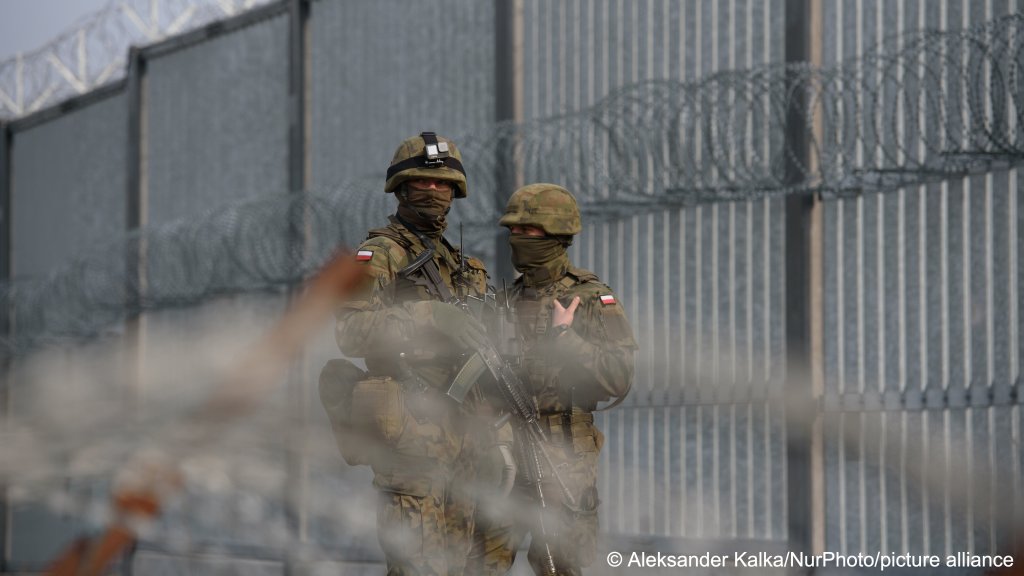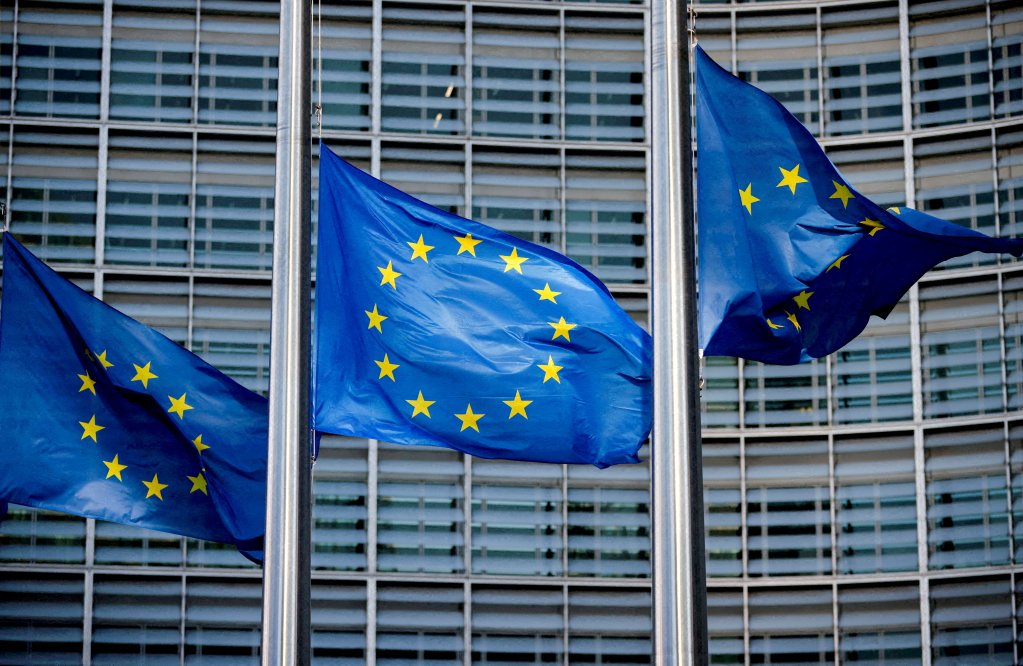Pushbacks, detention, violence – this is how underage migrants describe their experiences at the EU's external borders in a new report. The humanitarian organization Save the Children fears that restrictive migration policies across Europe could make it even worse.
"We wanted to go to Rhodes. At some point, the boat driver said that the coast guard is 10 kilometers away from us so I cannot go any further," said 17-year-old Ahmed from Egypt.
"We started swimming and arrived at Symi, Greece. When we arrived, they started shooting at us."
Ahmed's experience is one of 33 testimonies collected by the NGO Save the Children, which is now published in a new report analyzing the treatment of children at the EU's external borders in Greece, Italy, Finland, Spain, and Poland.
Collectively, the testimonies show that refugee and migrant children arriving in Europe face systematic abuse, violence, detention, unlawful pushbacks and misidentification as adults, Save the Children said in a corresponding press release.
For the 103-page report, the authors analyzed the situation of children who were traveling with their families, without adult caregivers or separated from them.
Read Also'Brutal barriers'? A closer look at the EU's eastern border
Border securitization 'disproportionately impacts children'
Among other things, the report stresses that accusations by some EU member states of allegedly instrumentalizing migrants have led to migration policy being increasingly treated as a security policy issue.
"In practice, this has facilitated the implementation of measures that disproportionately impact children, leaving them exposed to harsh conditions and potentially long-lasting harm," the report reads.
Poland, for instance, had imposed a state of emergency along its border with Belarus for a year. Both Belarus and Russia have repeatedly denied allegations by the Polish and other EU governments of staging a hybrid operation to increase the number of migrants arriving at their eastern border with the aim of destabilizing the bloc.

The report also highlights the example of employees of private companies that run reception facilities on Spain's Canary Islands being accused of abusing children there.
According to the report, the fast tightening of migration and asylum laws in Finland, Italy and Greece have moreover made it almost impossible for asylum seekers and their legal representatives to keep up to date. The report further claimed that age checks for children without identity documents are characterized by considerable inconsistencies, racist prejudices and procedural shortcomings in the three countries.
Read AlsoPoland to launch 'information campaign' to prevent migrants from taking Belarus route
Gaps in support and protection?
The Save the Children report furthermore claims that the Common European Asylum System (CEAS), which is due to come into force in June 2026, lacks support and protection measures. For instance, the regulation for border procedures does not provide for any exceptions for families with minor children, according to the report.
Concretely, the planned procedures at the external borders could make it harder to "identify child-specific reasons for fleeing due to lack of time, lack of child-friendly information, and lack of support" such as female genital mutilation or being child soliders, Save the Children migration expert Janneke Stein is quoted in the report.
Stein also criticized CEAS for allowing for more opportunities to detain people at the external borders.

The report moreover raised concerns about the EU's new Pact on Migration and Asylum, which aims to reform CEAS by establishing a more unified and efficient approach to managing migration and asylum requests across member states.
While Save the Children acknowledged that it will introduce new child-specific safeguards, including multidisciplinary age and vulnerability assessments and the appointment of physical legal guardians, it laments what it calls a "fragmented implementation".
"While the Pact has been framed as a balanced compromise between border security and human rights, without stronger enforcement of child rights in its implementation, vulnerable children will continue to fall through the cracks," Save the Children Europe Director Willy Bergogné is quoted in said press release.
The pact has been criticized by other organizations, too. In April, for instance, the Tunisian Forum for Economic and Social Rights warned of possible negative effects for Tunisian nationals in the Schengen Area. The European Commission, on the other hand, the EU's executive branch, maintains that the pact will respect fundamental human rights.
Read AlsoAsylum in the EU: What is the new 'safe countries' list?
More legal pathways and other proposals
In its report, Save the Children proposed a number of measures to support and protect children on the move.
Among other things, it called on the EU to develop more legal and safe access routes for children to "reduce risks such as human trafficking, the disappearance of children, and deaths on the escape routes," Save the Children's Stein said. "This can be achieved, for example, through family reunification and humanitarian admission programs."
This proposal comes at a time when regular pathways to the EU are actually shrinking. Germany and several EU countries, for instance, have recently introduced laws to suspend family reunification.
Save the Children further proposed that border officials be trained to interact with children, especially girls and those who have experienced violence, in a sensitive and understanding way. They recommend that child assessments happen in a child-friendly setting with experts who can help, considering the child's health, development and background for accurate results.
Save the Children also called for the principles of the UN Convention on the Rights of the Child, the EU Charter of Fundamental Rights and the European Convention on Human Rights to be upheld in the EU Pact on Migration and Asylum.
with epd, KNA
